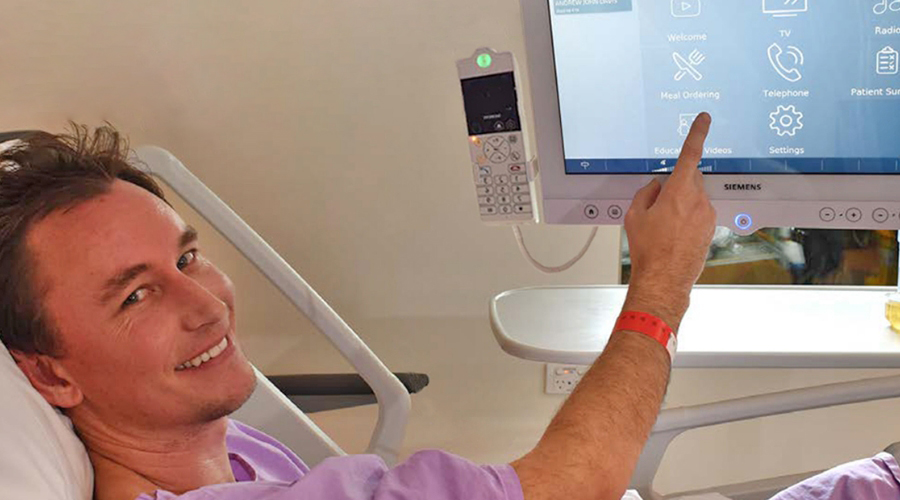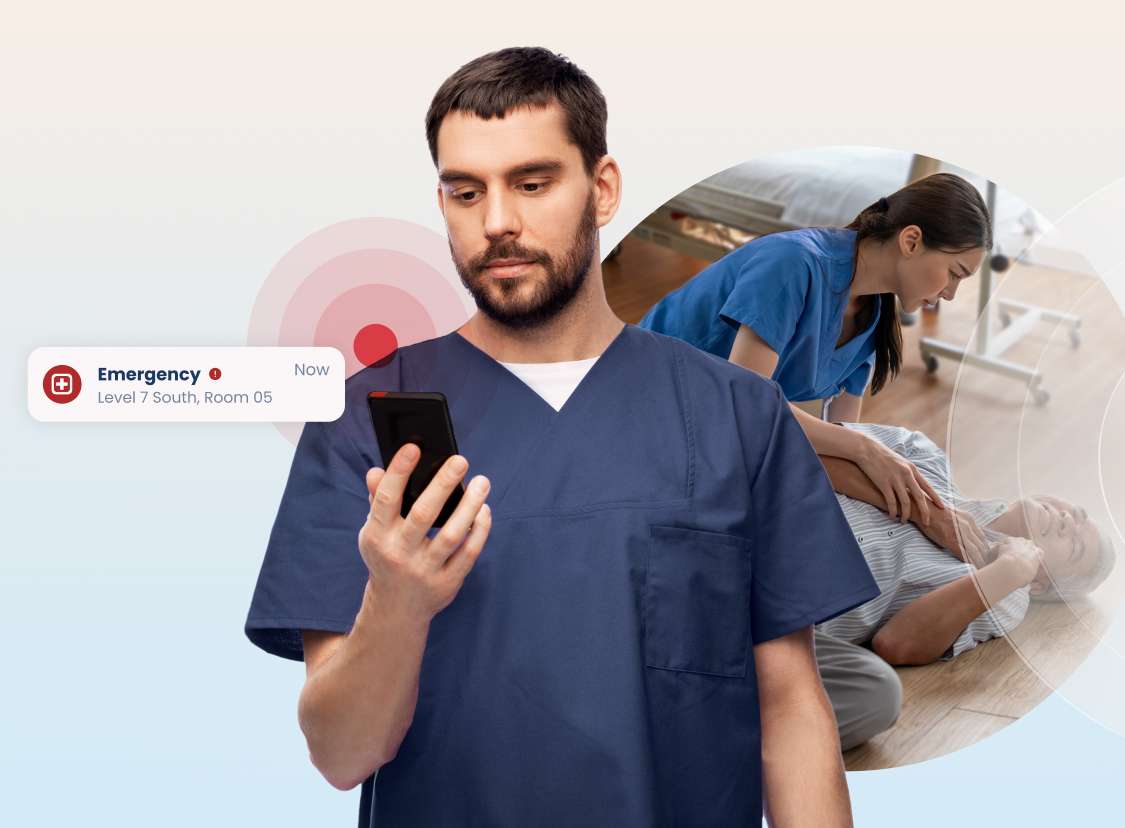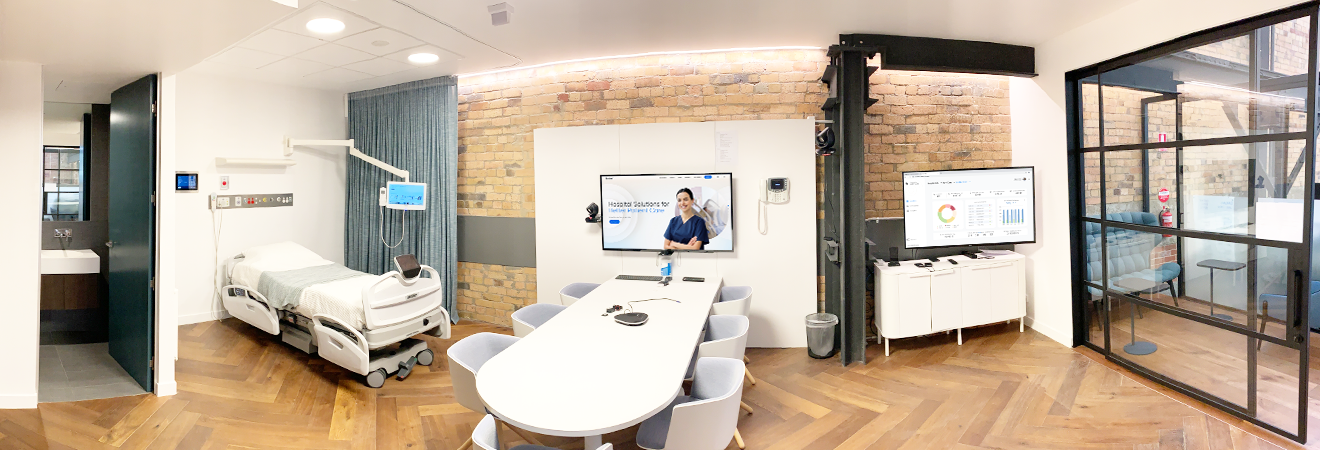- 5 min read
Innovative Foodservice Delivery Systems Set to Make a Difference at Queensland’s First Purpose-Built Digital Hospital
Hospital

Share:
The opening of Queensland’s first new ‘digital ready’ hospital, the Surgical, Treatment and Rehabilitation Service (STARS) is set to deliver an additional 12,000 gastroenterology procedures and 14,000 surgical procedures per year.
The first building to be completed as part of Metro North’s Herston Quarter redevelopment, the facility will provide specialist public health care for long stay acute rehabilitation patients along with elective surgery services.
Comprising 182 beds, special purpose rehabilitation support areas and a surgical/endoscopic centre, STARS commenced clinical services in February. Prior to this, Jennifer Ellick and Brendan Host came on board in October as Manager of Dietetics and Foodservice and Site Coordinator of Foodservice respectively and began recruiting their team of 40. We spoke to Jennifer to find out more about the foodservice side of the operation.
“The hospital is the first greenfield digital site in Queensland, and as we are dedicated to the patient-centred model of care, we need to make sure digital is supporting the patient experience and not the other way around,” Jennifer points out. “The patient needs to be at the heart of everything we do, so we use our digital innovations to support that, along with an evidence-based approach to foodservice delivery.”
So what exactly is a ‘digital’ hospital? Jennifer explains: “Essentially, anything that can be achieved digitally is done so – such as our clinical information systems which are all online.”
In foodservice terms this is a big change from manual paper-based systems. “Our food safety systems, menu management system, meal ordering system are all digital – our patients order meals from a patient engagement system at their bedside, in real time on demand. There are pictures of the food and they can order what they want, when they want it, just like hotel room service.
“This is particularly suitable for the short stay surgical patients who aren’t usually here very long – we want them to be able to order foods suitable for their stage of recovery and for when they feel like eating. It’s all about offering maximum flexibility and patient choice – short stay patients often have their diets updated quite quickly, so the traditional model of ordering meals in advance isn’t going to work for them. Thanks to the bedside technology, they can order an all-day breakfast, items like burgers, pizzas, toasted sandwiches – the kinds of things people feel like eating when they’ve woken up after three days of fasting!
“We’ve actually had 100 per cent uptake of patients in room service using the patient engagement system to order meals whereas in other hospitals it tends to sit at around 20 per cent.
“I think that’s largely due to the patient-friendly bedside technology – in other hospitals patients often have to use their own devices, but here we have a big touchscreen beside their beds which is easy to operate.”
Republished as an excerpt with permission from IHHC National Magazine June 2021.
Share:
Related Content

- 24 February 2025
- 5 min read
Enhancing Staff Safety at Maitland Hospital with Mobile Duress
Discover how Maitland Hospital implements mobile duress technology to safeguard people safety in healthcare.
- Hospital

- 7 February 2025
- 5 min read
Effective Real-Time Location Systems (RTLS) in Healthcare: How to make the right choice for your facility’s needs
Understand the key considerations for healthcare decision makers when investing in RTLS-based digital health solutions.
- Enterprise
- Hospital
- Aged Care

- 6 January 2025
- 5 min read
Your Gateway to Better Care: Our Concentric Care platform in action
Our Experience Centre offers healthcare professionals a hands-on experience with our digital solutions that enhance patient care and transform healthcare delivery.
- Hospital
- Aged Care
- Rauland

- 24 February 2025
- 5 min read
Enhancing Staff Safety at Maitland Hospital with Mobile Duress
Discover how Maitland Hospital implements mobile duress technology to safeguard people safety in healthcare.
- Hospital

- 7 February 2025
- 5 min read
Effective Real-Time Location Systems (RTLS) in Healthcare: How to make the right choice for your facility’s needs
Understand the key considerations for healthcare decision makers when investing in RTLS-based digital health solutions.
- Enterprise
- Hospital
- Aged Care

- 6 January 2025
- 5 min read
Your Gateway to Better Care: Our Concentric Care platform in action
Our Experience Centre offers healthcare professionals a hands-on experience with our digital solutions that enhance patient care and transform healthcare delivery.
- Hospital
- Aged Care
- Rauland